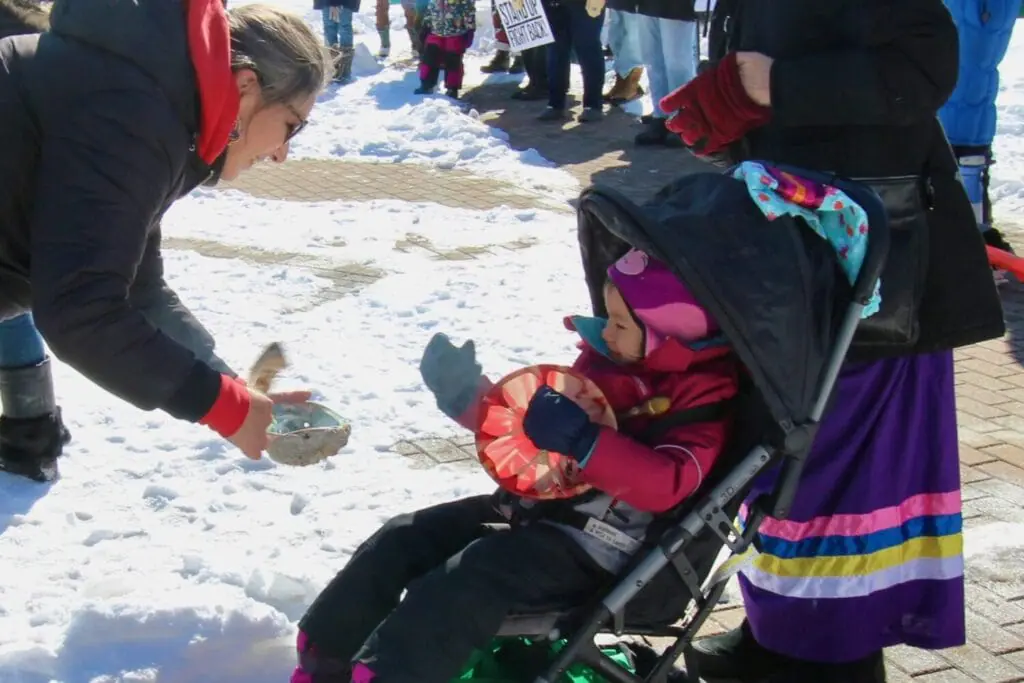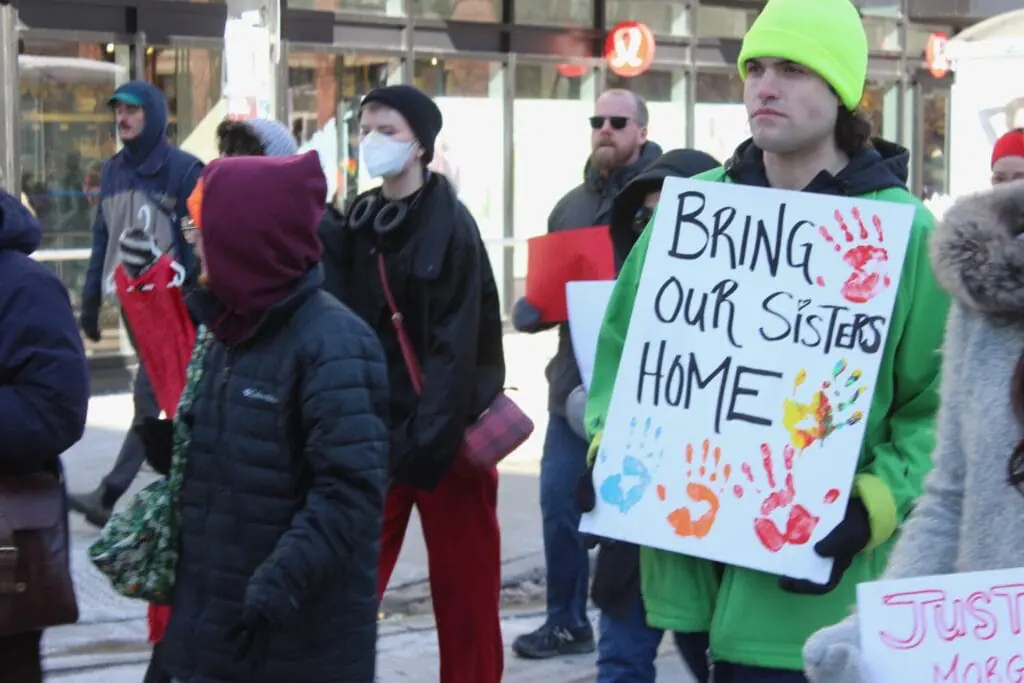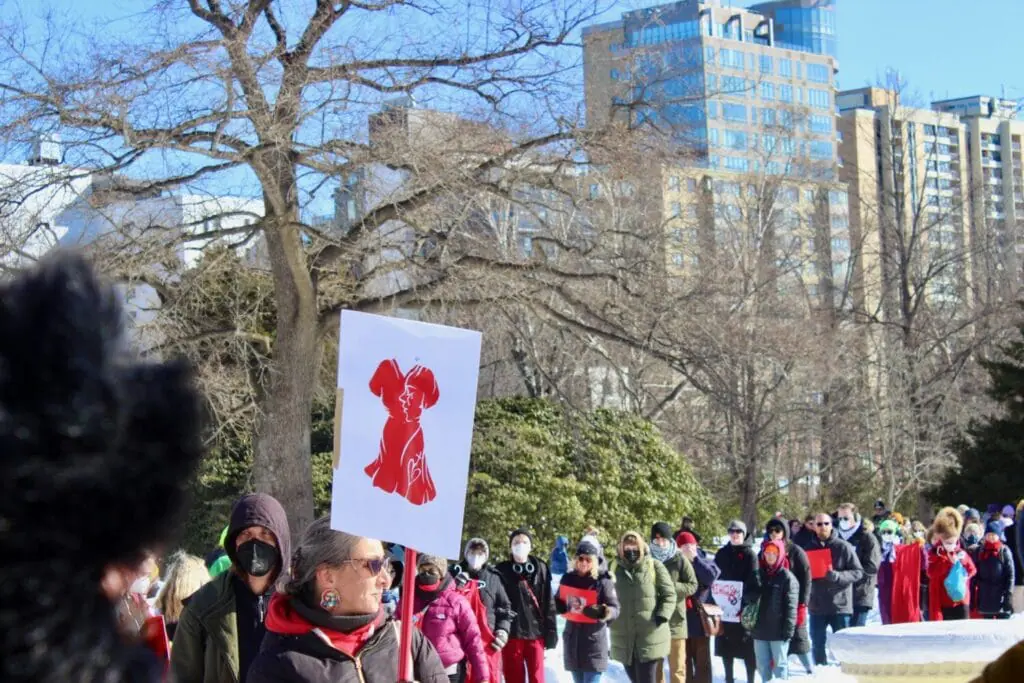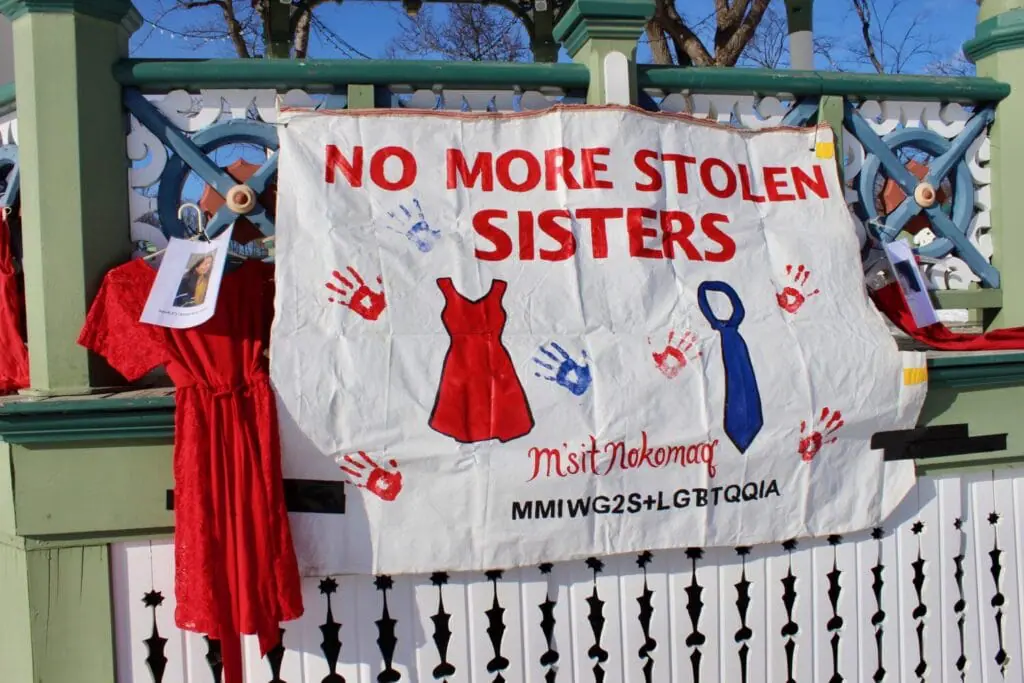Over 120 people gathered at Peace and Friendship Park on Sunday, Feb. 18 for the fourth annual march for missing and murdered Indigenous women, girls, two-spirit persons and relatives.
The march was held to raise awareness, mourn and stand in ceremony to honour the Indigenous lives that have been stolen. Participants met at the park to organize and hand out signs and red dresses to carry for the march. Red dresses became a symbol of the movement when Métis artist Jamie Black started the REDress Project in 2010, hanging red dresses to represent missing and murdered Indigenous women.
Before the march, Indigenous volunteers smudged attendees who opted in with sage. Smudging is a cultural ceremony meant to cleanse participants and connect them with their spirit and creator.
The march left Peace and Friendship Park and stopped traffic as it continued up the middle of Barrington Street and Spring Garden Road.
The march finished at the Public Gardens as attendees formed a semi-circle around the gazebo to listen to speeches and singing.
At the Public Gardens, Dalhousie’s Indigenous Student Representative Alexina St. Pierre-Farrow gave attendees tobacco leaves and asked them to hold the leaves in their left hand while praying for the families of the missing and murdered women.
Dresses were hung along the bottom of the gazebo while onlookers stood in silence as the Mi’kmaq Honour Song was performed.
Thunderbird Swooping Down Woman, also known as Mi’kmaw Elder Darlene Gilbert, spoke to the crowd following the song. Gilbert has spent the past seven years organizing events like Sunday’s march.
“Today we remember the people that have been lost across Turtle Island,” she said. “I am going to take the time to read off these eight pages of names.”
Gilbert’s voice cracked as she read out the names of missing and murdered Indigenous women for over 10 minutes.
“I would like to thank you all for coming,” Gilbert said. “I would like to thank the families for being here. We as survivors are doing this so we can make changes for our future generations so that they don’t have to go through what we’ve gone through. And we continue praying for the families.”
Attendee Moka Case works with foreign and Indigenous languages for the Translation Bureau of Canada. She said her work reminds her daily of the survivors and their families.
“We’re settlers and we’re treaty people, and we need to honour that, not just by working with the bureaucratic side of it, but by putting humanity into what we do,” Case said. “It’s important that the families know that there are people like us who really, truly, care and who love them.”










Recent Comments